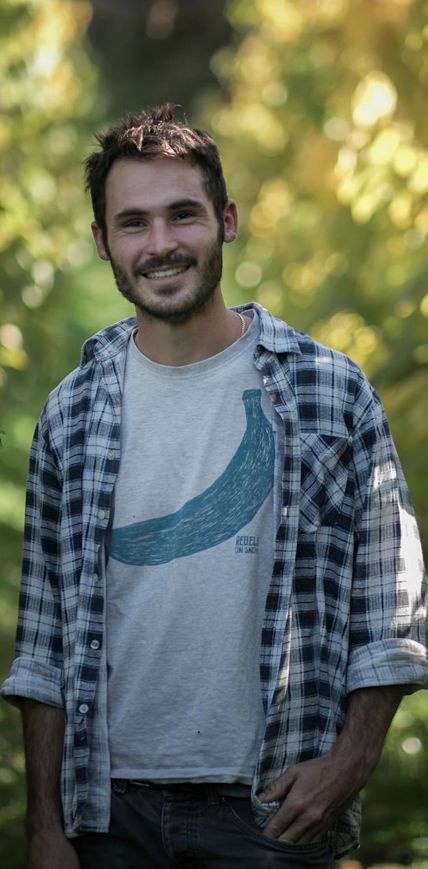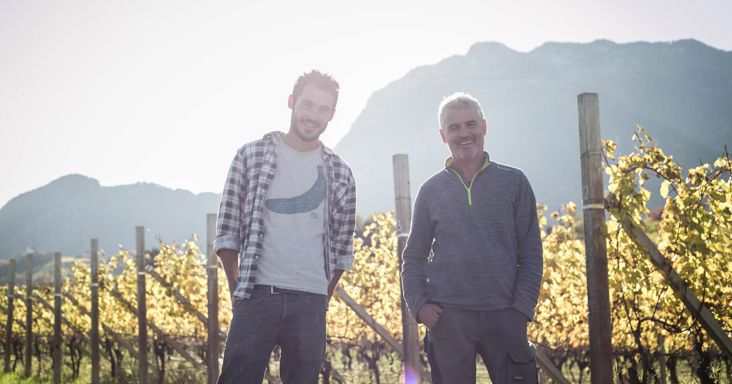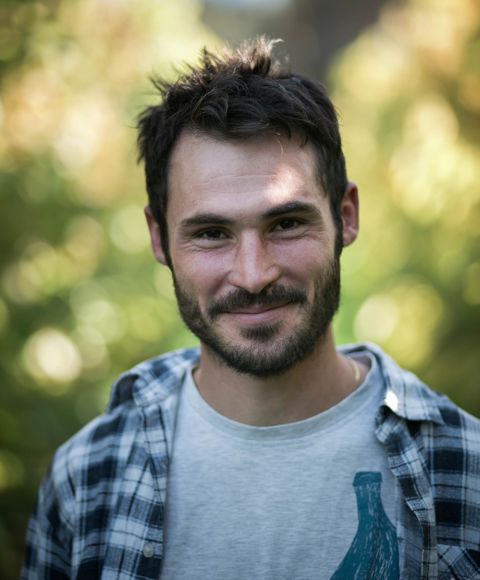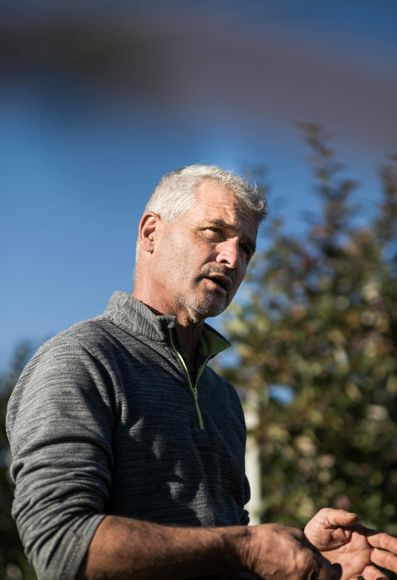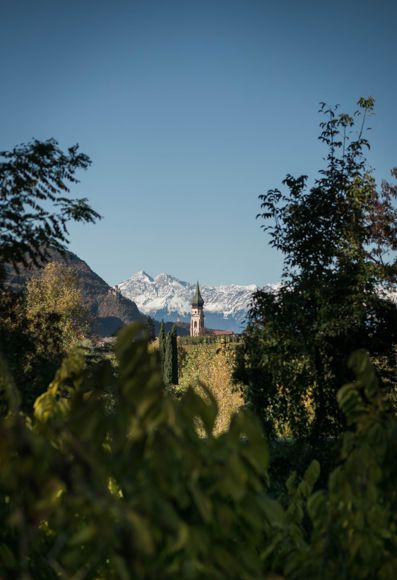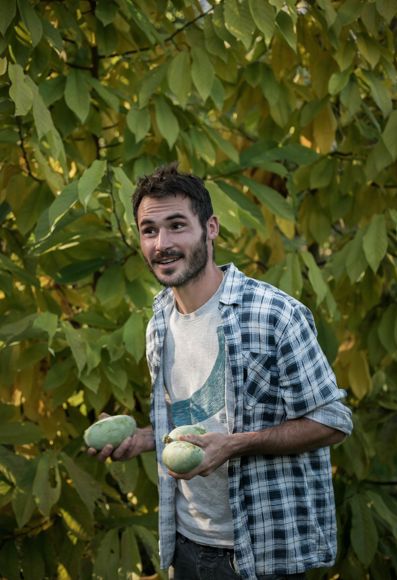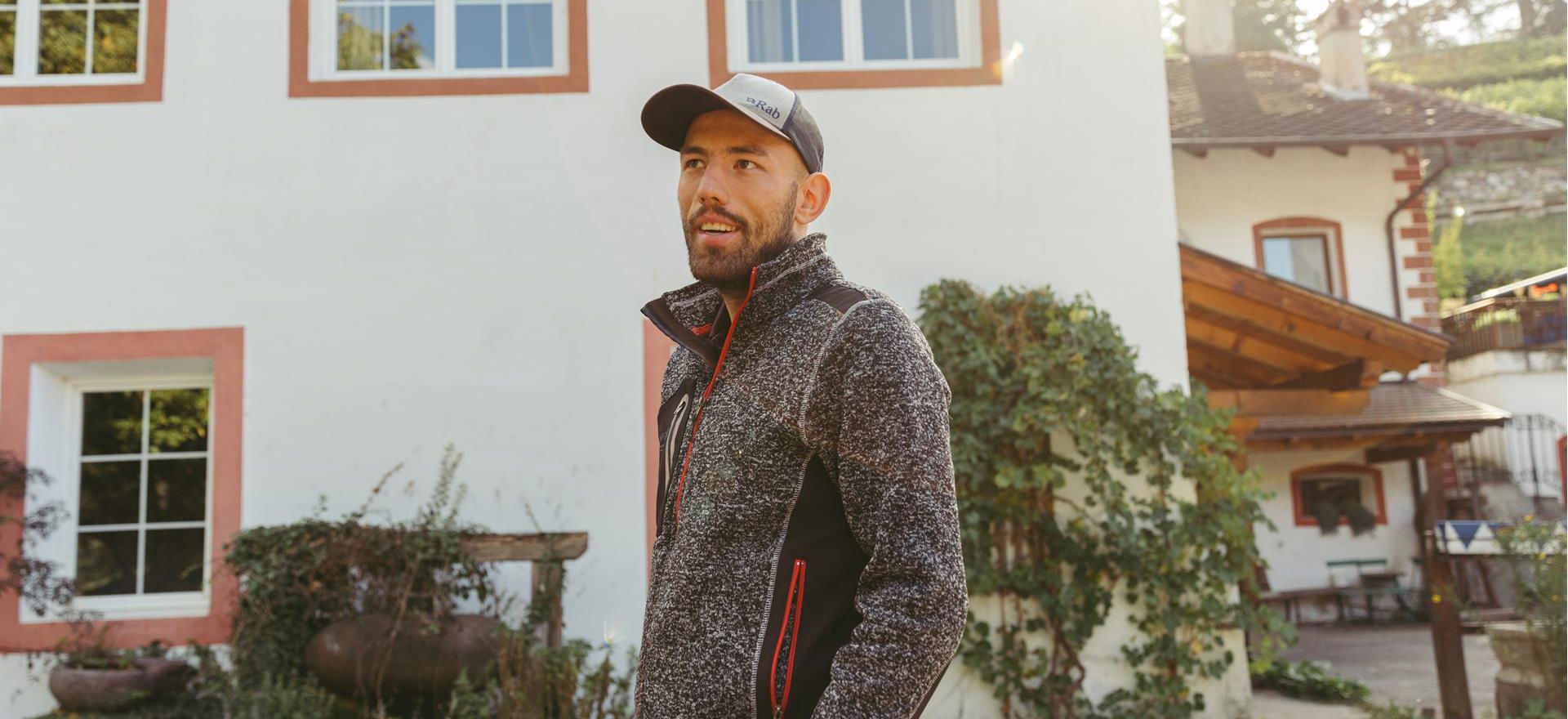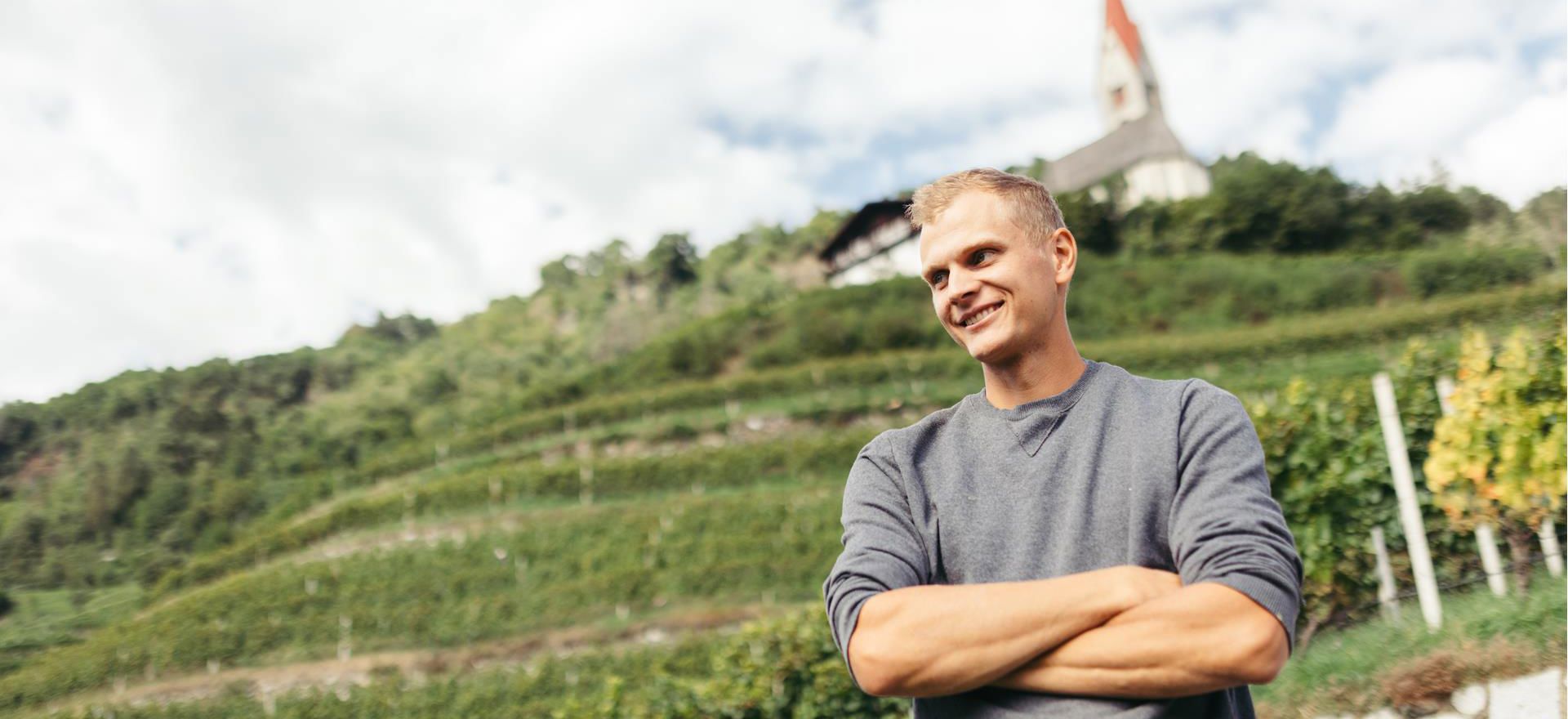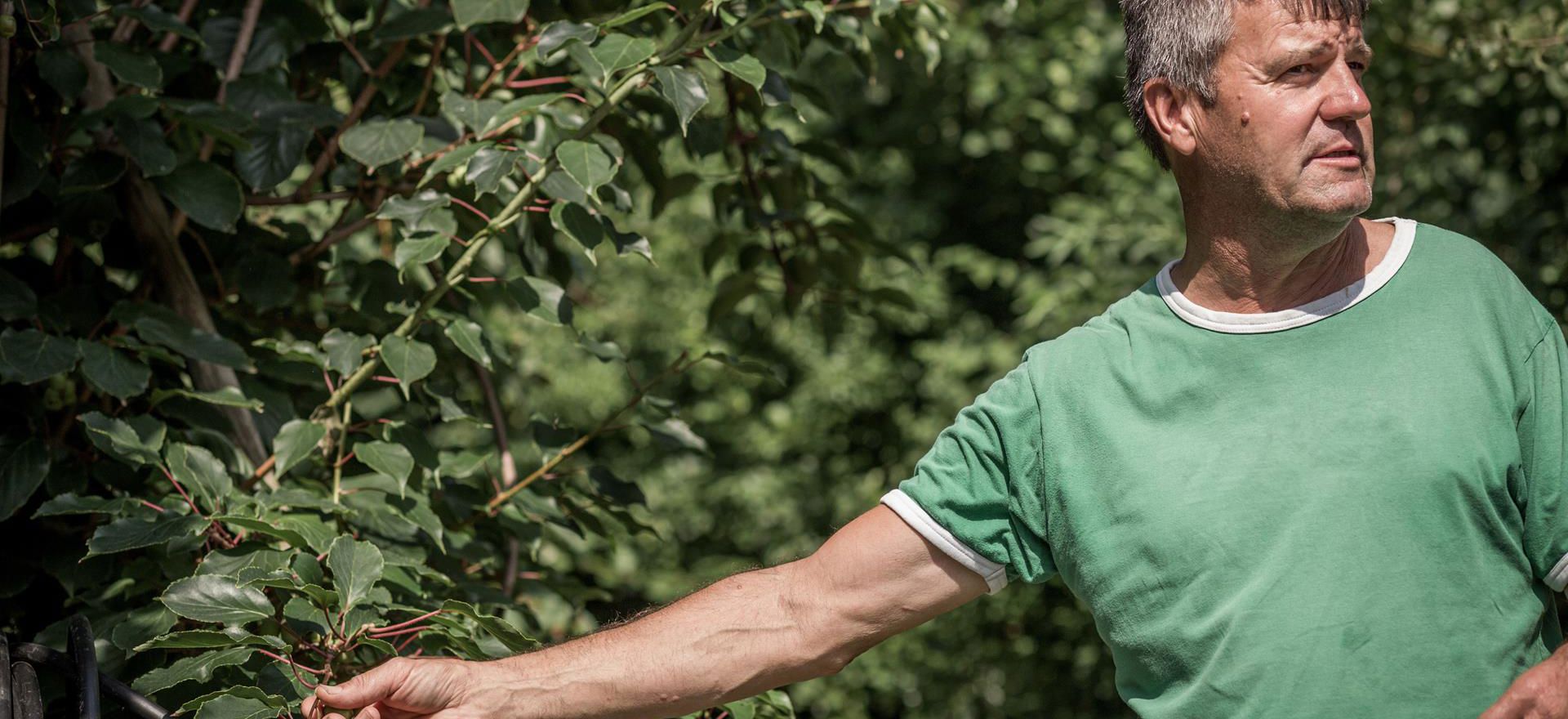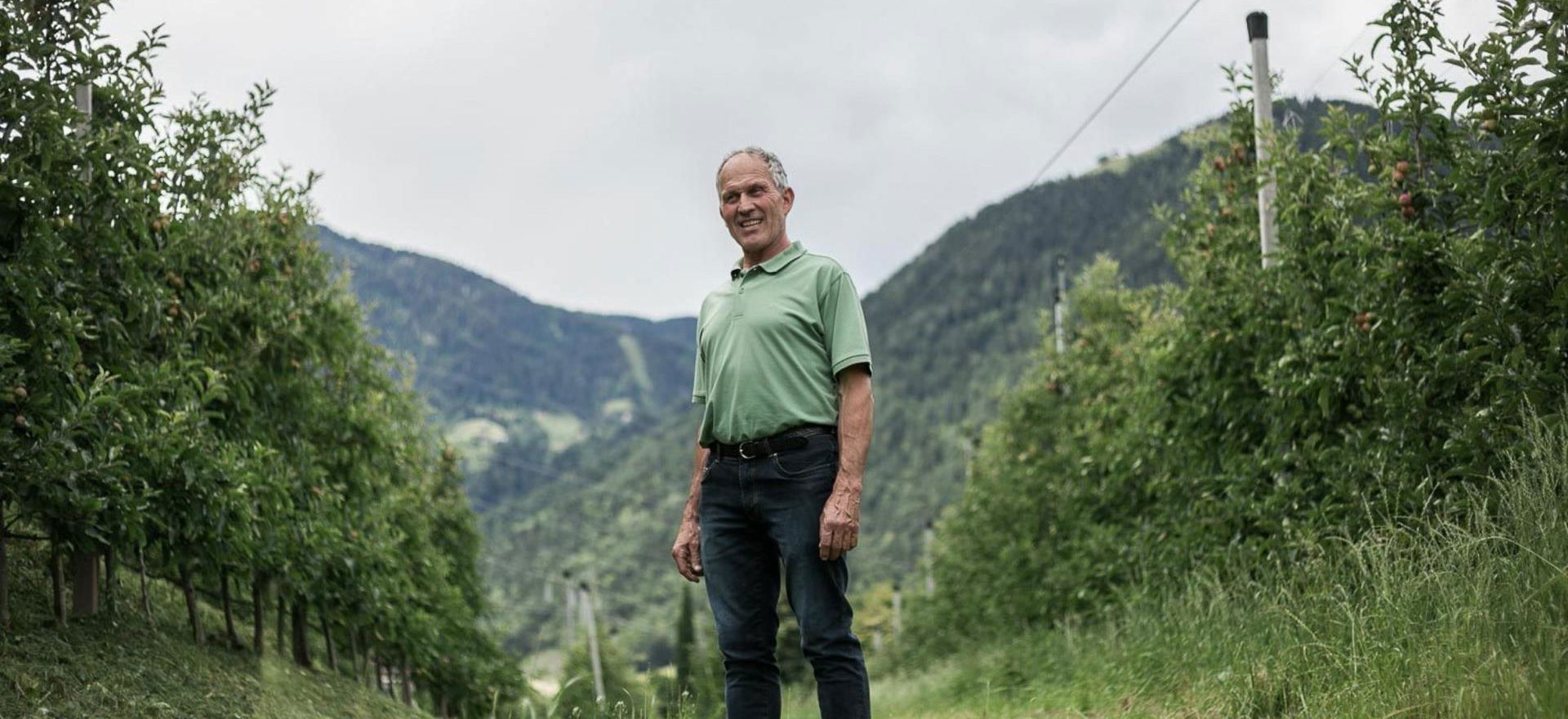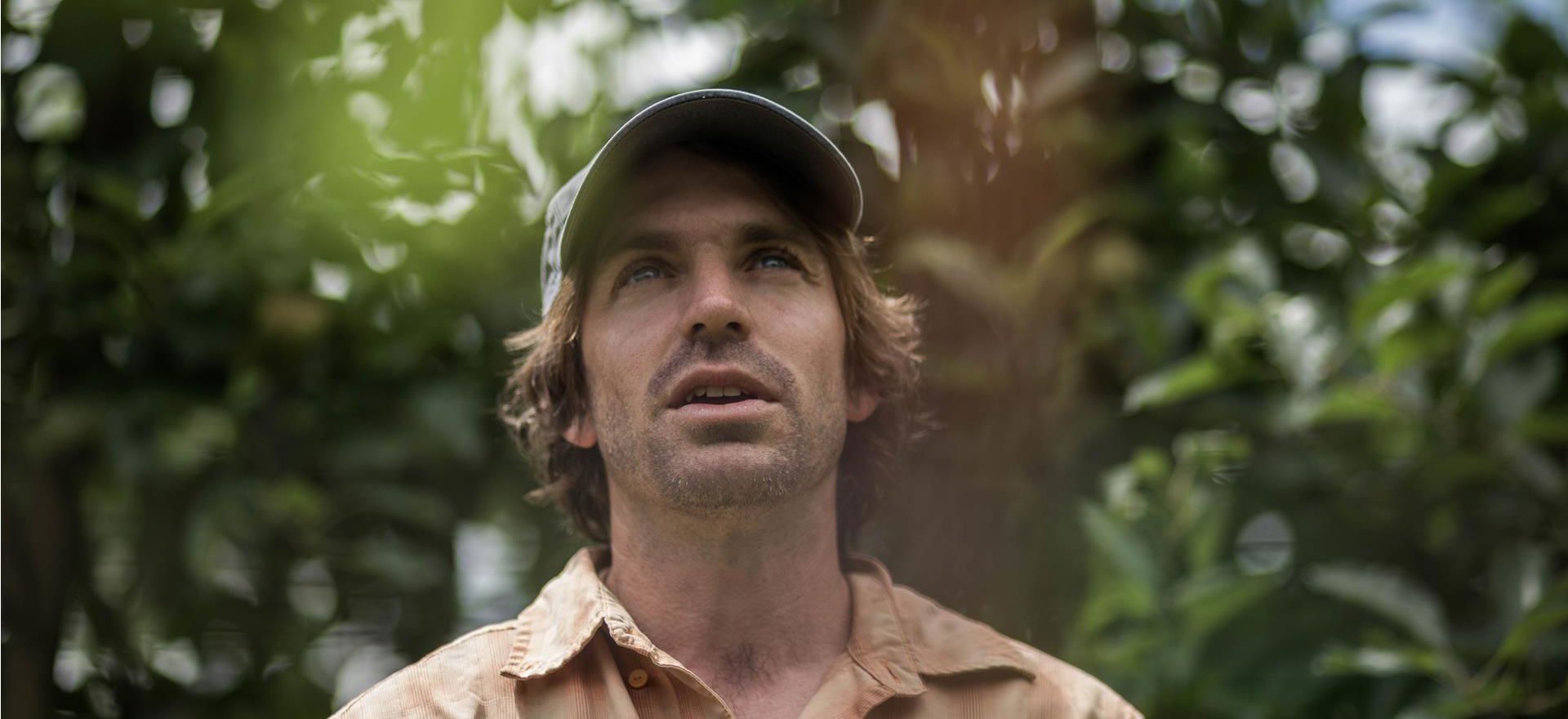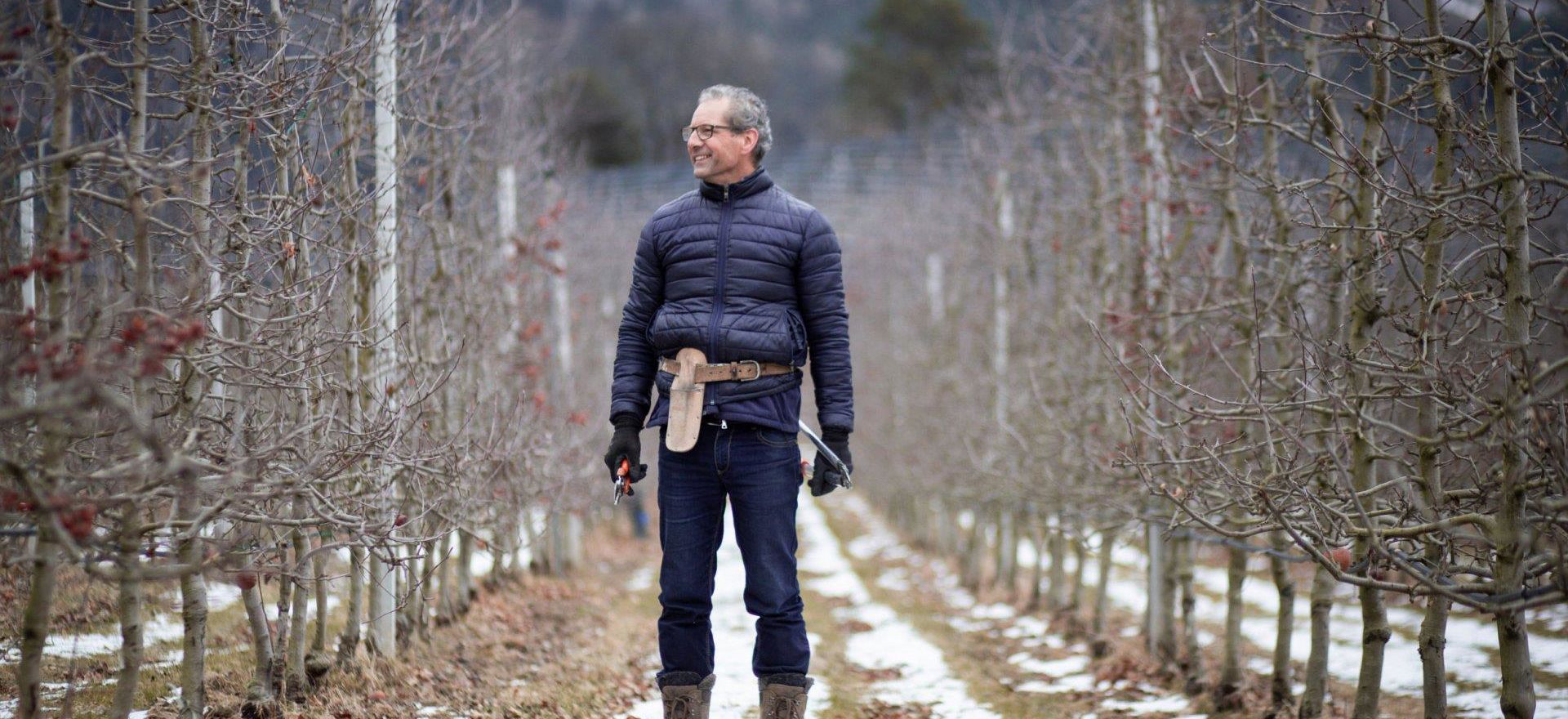Lorenz Werth grows up growing apples and wine grapes. As a farmer, he is master of his time and free to make his own decisions. He helps a friend with the apple harvest and sees that organic farming works. Inspired by this, he converts his farm to organic.
Lorenz's son Simon attends the agricultural high school in Auer and joins the farm. Managing the farm together is not always easy. Father and son find the way in a clear division of labour. Simon concentrates on his own fruit growing, Lorenz on the vineyards, which they cultivate organically for farmers from the surrounding area. They help each other, the boss is the respective "specialist". Gala, Golden Delicious, Topaz and Bonita apples all ripen in the Werths' meadows. Thanks to the compact harvest period from August to September, there is time to work in the vineyards afterwards.
Lorenz's son Simon attends the agricultural high school in Auer and joins the farm. Managing the farm together is not always easy. Father and son find the way in a clear division of labour. Simon concentrates on his own fruit growing, Lorenz on the vineyards, which they cultivate organically for farmers from the surrounding area. They help each other, the boss is the respective "specialist". Gala, Golden Delicious, Topaz and Bonita apples all ripen in the Werths' meadows. Thanks to the compact harvest period from August to September, there is time to work in the vineyards afterwards.


